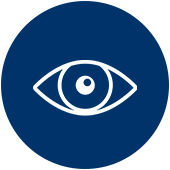
Non- |
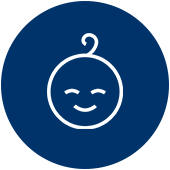
Wide age- |

Instant review |

Integration to |
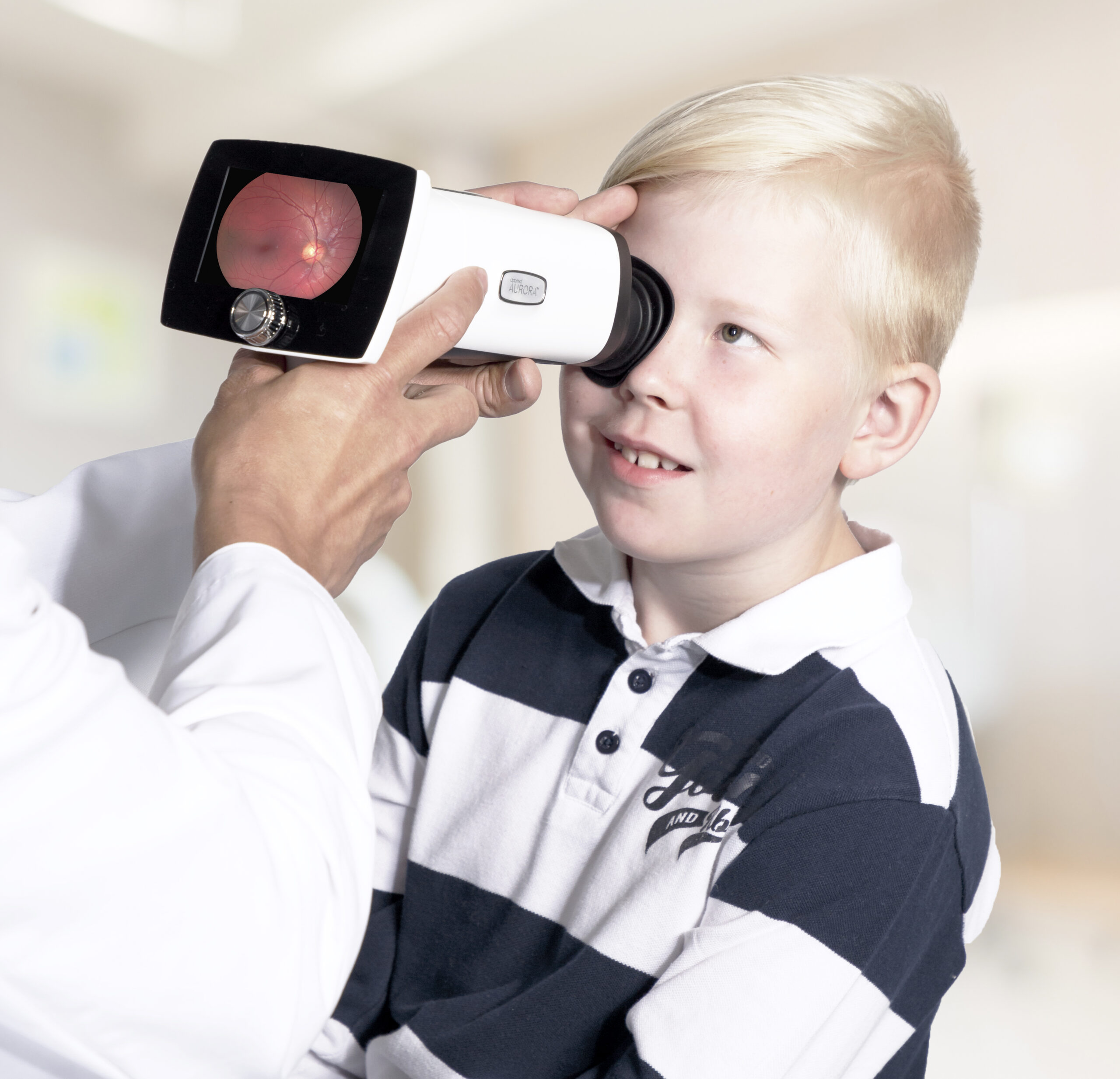
Complete the examination quickly and reliably
The Optomed handheld fundus camera offers easy-to-use handheld technology for the often challenging pediatric retinal examinations with functions such as:
- Non-mydriatic operation
- Smart Autofocus™
- Auto Exposure
High-quality fundus images with a 50-degree field of view can be saved to medical records for documentation and follow-up.
Optomed offers two handheld camera models that are well-suited for pediatric examinations. Designed for speed and ease of use, the Optomed Lumo provides high-quality imaging and an intuitive user experience—ideal for pediatric eye screenings. The Optomed Aurora IQ supports both retinal and anterior segment imaging, enabling thorough documentation of various pediatric eye conditions.
Detect urgent retinal conditions early
Ocular fundus examination can lead to life- and vision-saving interventions¹. However, direct ophthalmoscopy in children without pupillary dilation is a very challenging task to perform for the non-ophthalmologist².
Our handheld fundus cameras offer a non-mydriatic documenting solution to pediatric emergency and neurology use for the early detection of urgent conditions such as papilledema.
Retinal images can be saved to electronic patient records to allow follow-up and remote consultation from a specialist.
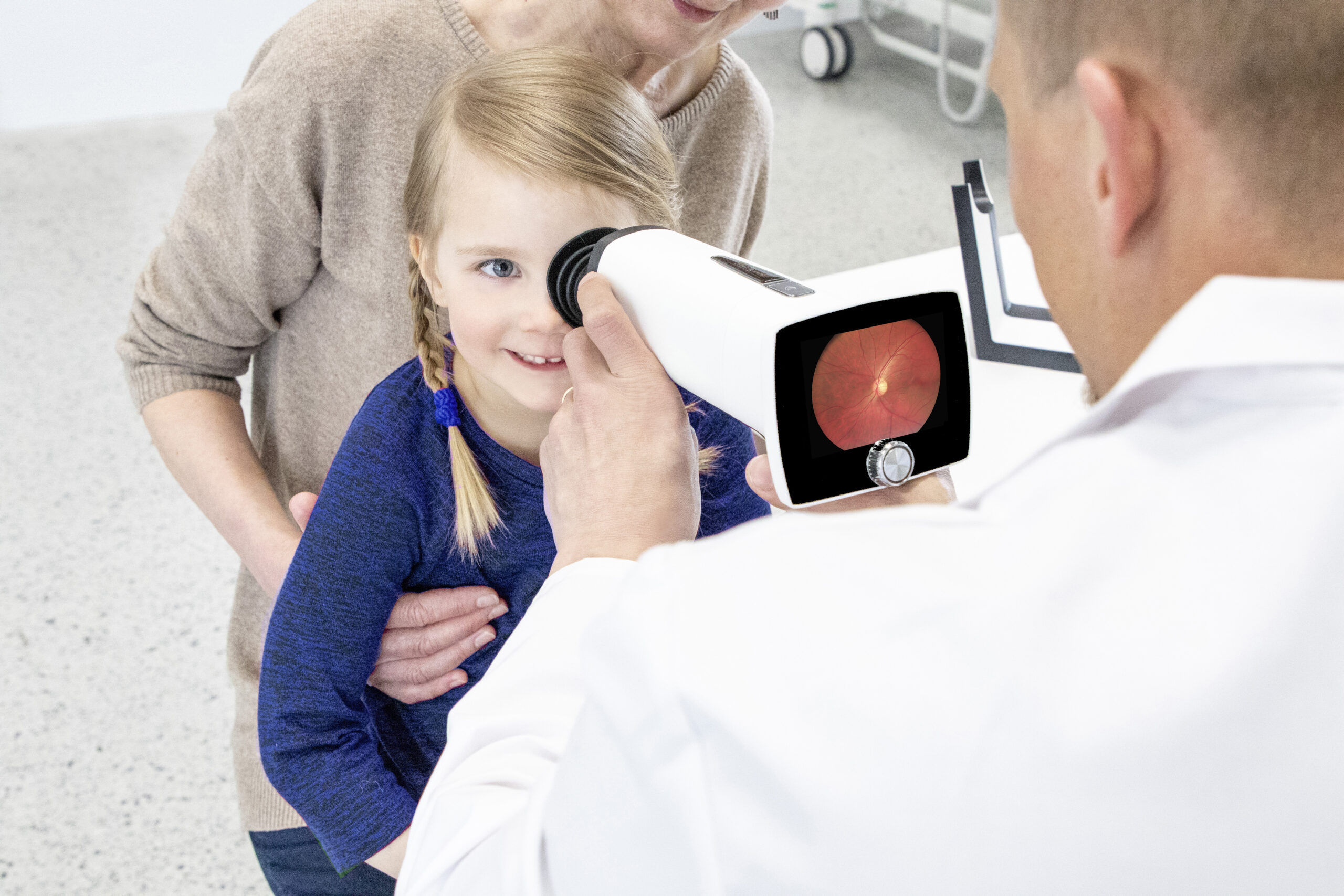
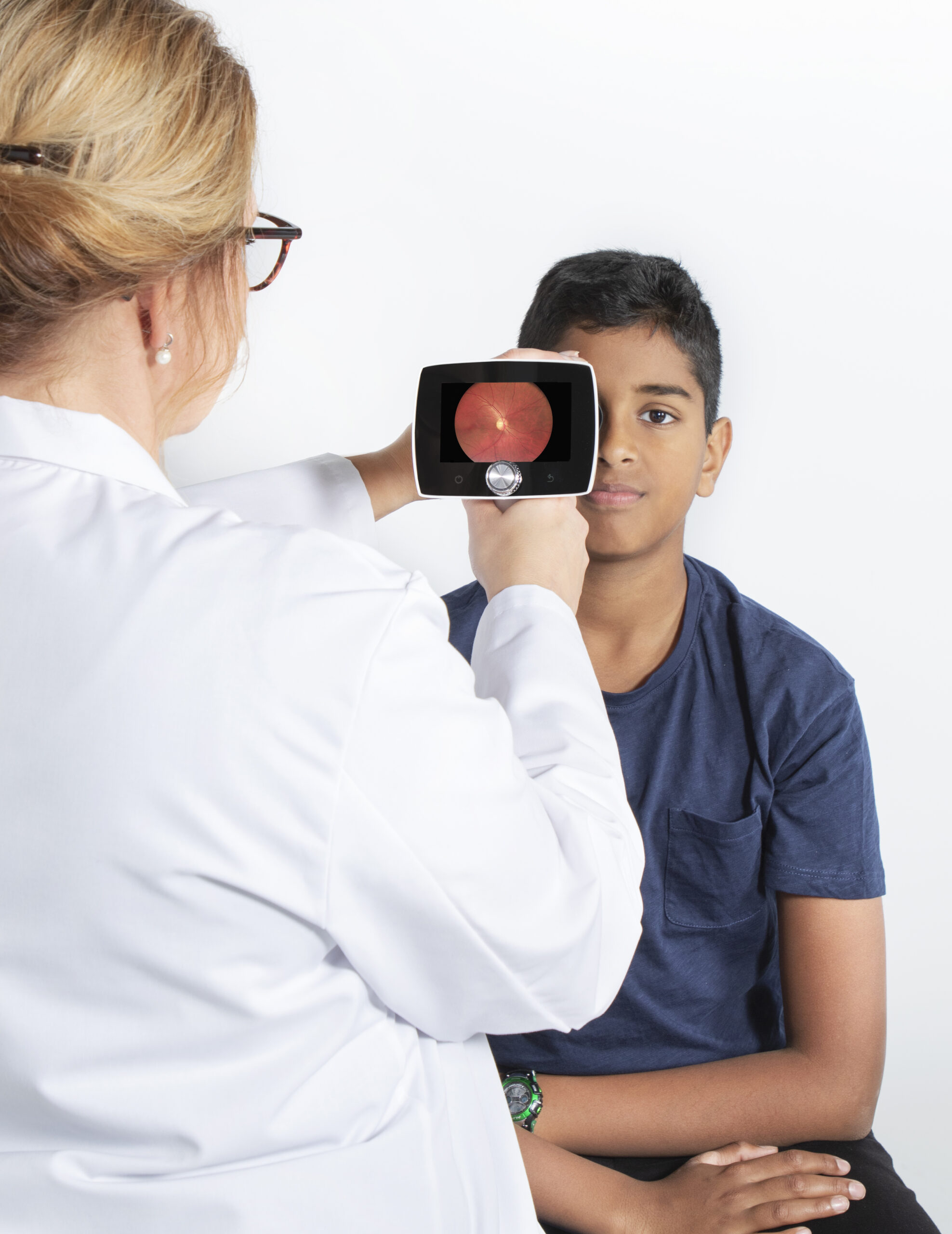
Patient friendly imaging
The Optomed handheld fundus camera allows a comfortable eye examination for the child, and capturing retinal image is fast.
During the examination, invisible infrared illumination is used for the camera alignment and only a short white light flash for the image capture. This is a more comfortable examination technique than the continuous bright light of the ophthalmoscopic examination.
After the examination, the images can be instantly introduced to the child and parent from the camera screen for visualizing the purpose and results of the examination.
The compact size of the handheld fundus camera is often seen less intimidating than larger imaging devices. Thus, cooperation with the child can be improved when high-quality retinal images are captured.
Read what our users think about us
We like the ease of use and high quality of the photography and the usefulness of explaining the results to family members
Shunusuke Tokui
Assistant Professor, Department of Ophthalmology and Visual Science, Gunma University Hospital, Japan
I use the Optomed Aurora® IQ for fundus photography of children and premature infants at the University Hospital and the Prefectural Perinatal Medical Center. I use it to record fundus findings in children who have difficulty with fundus photography with a stationary fundus camera and to compare fundus findings in retinopathy of prematurity, which requires frequent follow-up. We like the ease of use and high quality of the photography and the usefulness in explaining the results to family members.
In our practice, we have not identified age restrictions for the use of Optomed Aurora
Elvira I. Saidasheva
MD, Chief Children’s Ophthalmologist, Professor, Russia
Own experience of using Optomed Aurora portable fundus camera in pediatric ophthalmic practice for several months made it possible to significantly expand the range of patient examinations. Thanks to the modern digital design, convenient interface, training and subsequent work with the camera did not cause difficulties. I would like to note a wide field of view (viewing angle of 50 °), which is an excellent indicator when using contactless technology in a fundus camera. A high-quality TFT-LCD display with a diagonal of 4 inches made it possible to quickly analyze the resulting image in real-time mode.
In the conditions of a multidisciplinary hospital for children, we used Optomed Aurora at all levels of patient care: outpatient care, intensive care unit, and other specialized departments, mainly due to the device’s autonomous operation and its compact size. In our practice, we have not identified age restrictions for the use of Optomed Aurora. Examination of newborns of the first week of life, including premature babies with pH, is convenient in the daily practice of an ophthalmologist. It is worth noting that we studied this group of patients on a fundus camera under conditions of drug mydriasis, due to low visual functions and unstable fixation of gaze, according to the age characteristics of children in the first months of life. Repeated studies were conducted for some patients, given the need for dynamic monitoring of the identified pathology. Especially children with optic edema, retinal hemorrhages, chorioretinitis (intrauterine infection), retinopathy of premature infants, etc. needed this especially.
Considering the possibility of storing the examination data in a digital format and comparing the obtained images, we were able to optimize the tactics of observation and treatment of the identified ophthalmopathology.
Thus, Optomed Aurora is a modern, high-tech portable medical device that can be useful in the practice of an ophthalmologist at any level of specialized care.
Contact us
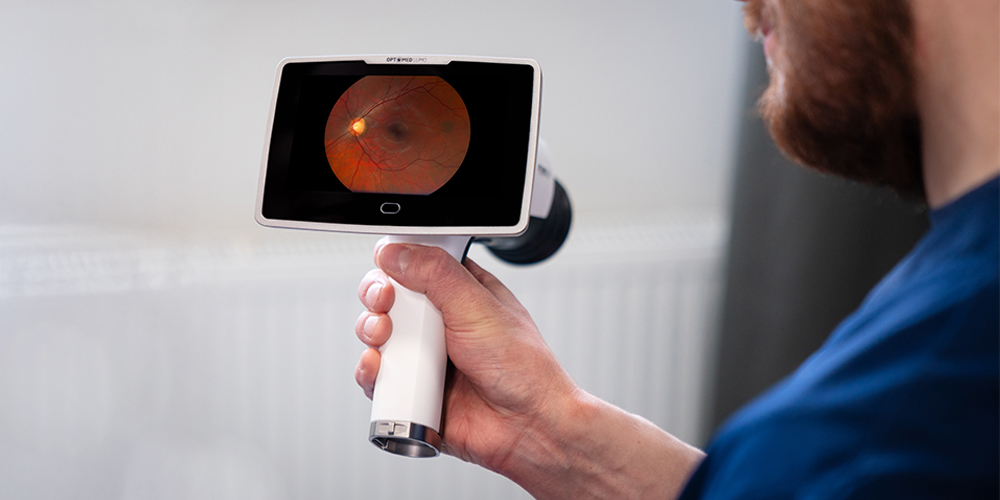
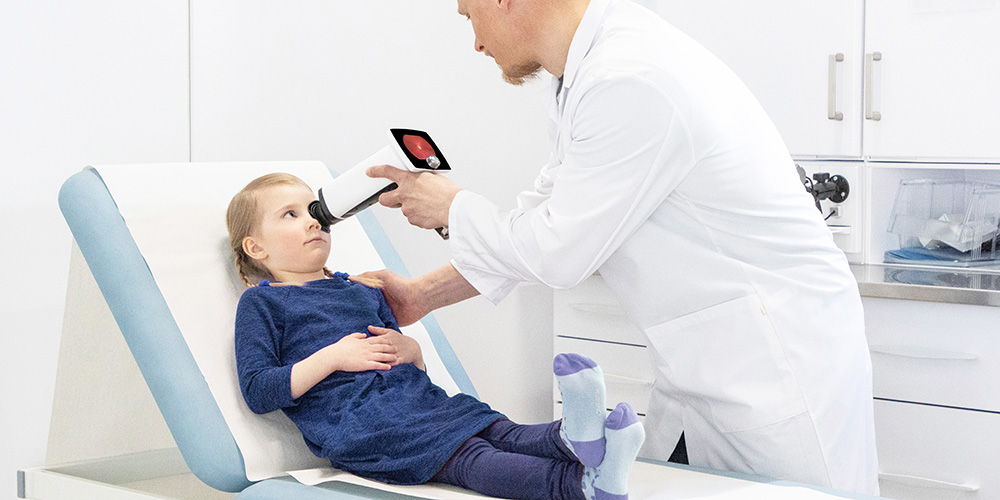

Sources: 1) Mackay DD, Garza PS, Bruce BB, Newman NJ, Biousse V. The demise of direct ophthalmoscopy: A modern clinical challenge. Neurol Clin Pract. 2015;5(2):150-157.
2) Toffoli D, Bruce BB, Lamirel C, Henderson AD, Newman NJ, Biousse V. Feasibility and quality of nonmydriatic fundus photography in children. J AAPOS. 2011;15(6):567-572.
